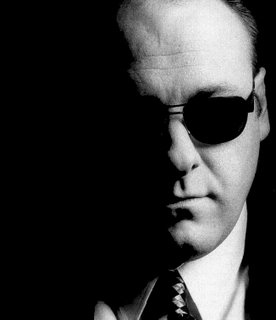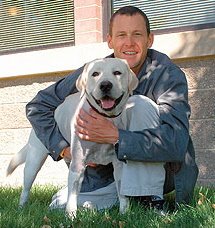 Part of the folklore of organized crime – be it the Mafia or street gangs – is that, once you join, you never leave. If you're a "made man" in La Cosa Nostra, a made man you stay. You can never retire, or change occupations. Always, you're bound by a certain code of conduct – a despicable code of conduct, to be sure, but a code of conduct all the same.
Part of the folklore of organized crime – be it the Mafia or street gangs – is that, once you join, you never leave. If you're a "made man" in La Cosa Nostra, a made man you stay. You can never retire, or change occupations. Always, you're bound by a certain code of conduct – a despicable code of conduct, to be sure, but a code of conduct all the same.I'm thinking, today, about some words I read at the end of Lance Armstrong's book, It's Not About the Bike. Having finished treatment and having won the Tour de France, Lance is asking the question of himself, "What comes next?" The answer is that, when it comes to his cancer, there is no "next," no moving on:
 "I will always carry the lesson of cancer with me, and feel that I'm a member of the cancer community. I believe I have an obligation to make something better out of my life than before, and to help my fellow human beings who are dealing with the disease. It's a community of shared experience. Anyone who has heard the words You have cancer and thought, ‘Oh, my God, I'm going to die,' is a member of it. If you've ever belonged, you never leave." - It's Not About the Bike (Putnam's, 2000), p. 274.
"I will always carry the lesson of cancer with me, and feel that I'm a member of the cancer community. I believe I have an obligation to make something better out of my life than before, and to help my fellow human beings who are dealing with the disease. It's a community of shared experience. Anyone who has heard the words You have cancer and thought, ‘Oh, my God, I'm going to die,' is a member of it. If you've ever belonged, you never leave." - It's Not About the Bike (Putnam's, 2000), p. 274.I expect this is true even of those whom the doctors label "cured." Even if there's no expectation of the disease ever coming back, there's still the memory of the ordeal: an experience shared with millions of others who have had this disease, in one of its many forms.
Groucho Marx famously quipped, "I would never join a club that would have me for a member." The cancer community has only one membership requirement, and it has nothing to do with character, talents or notches on a resume. It's very egalitarian, that way. But once you join, you have a lifetime membership.
I'm going to be discovering, in the months and years to come, what my particular obligation is, as a member of this community. It may mean continuing to attend support groups, and lend assistance to others. It may mean making myself available to write or speak, in aid of organizations that support cancer survivors and their families. It will certainly mean giving an extra measure of attention to patients who are newly diagnosed (by all accounts, diagnosis is the most difficult time, emotionally, for patients).
Members of the Cancer Underground reached out to me at a critical time. I would like to be able to do the same for others.